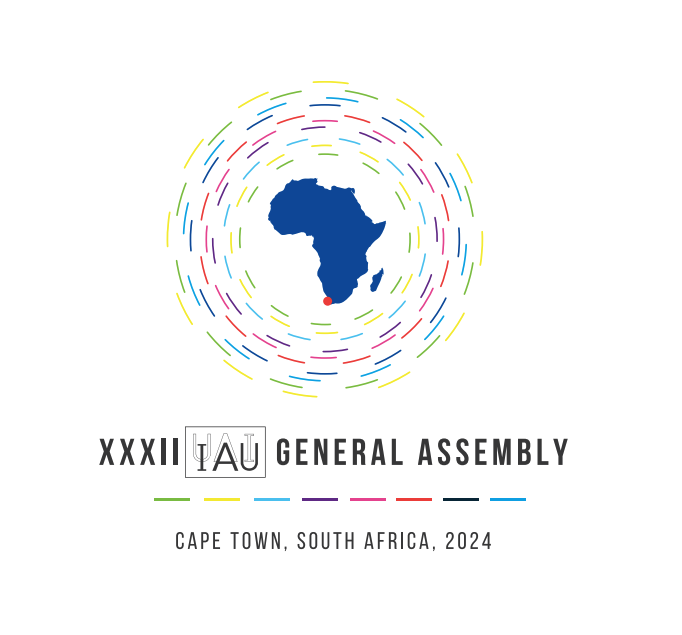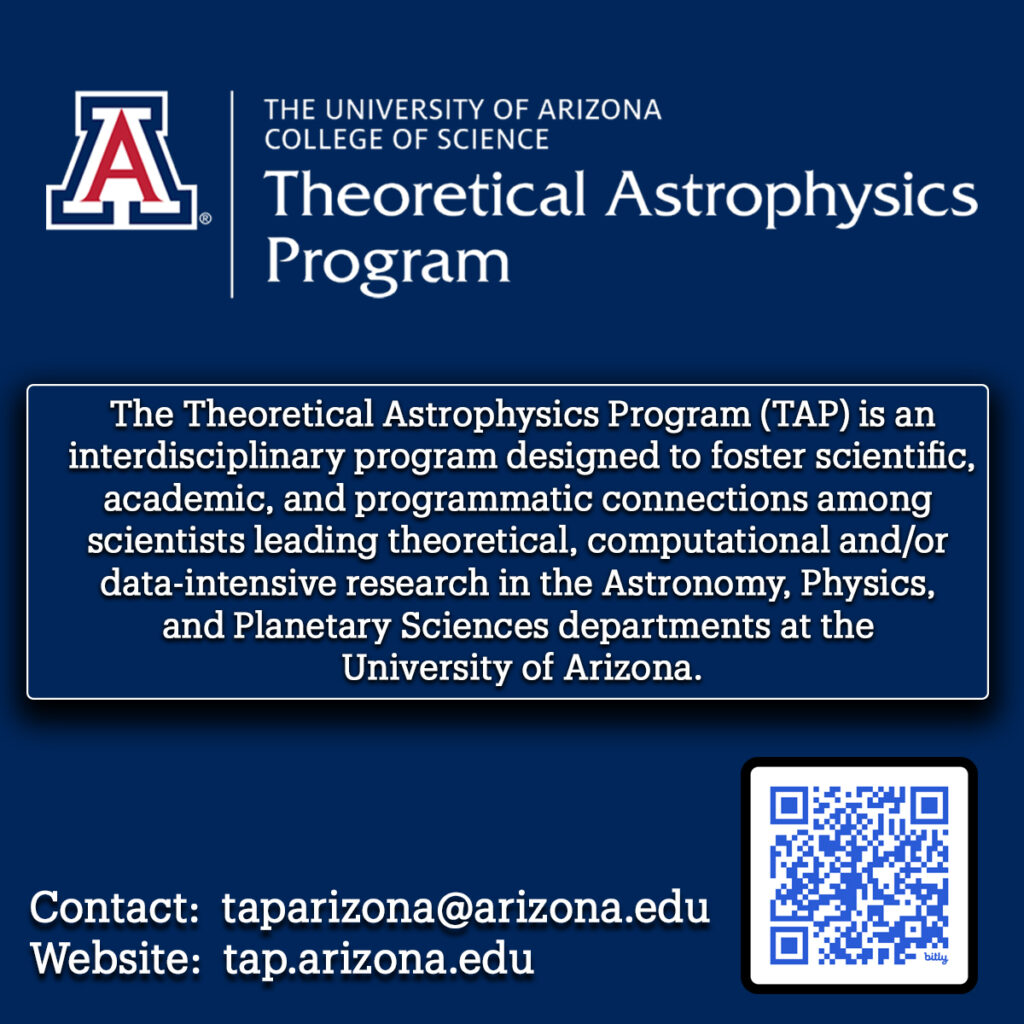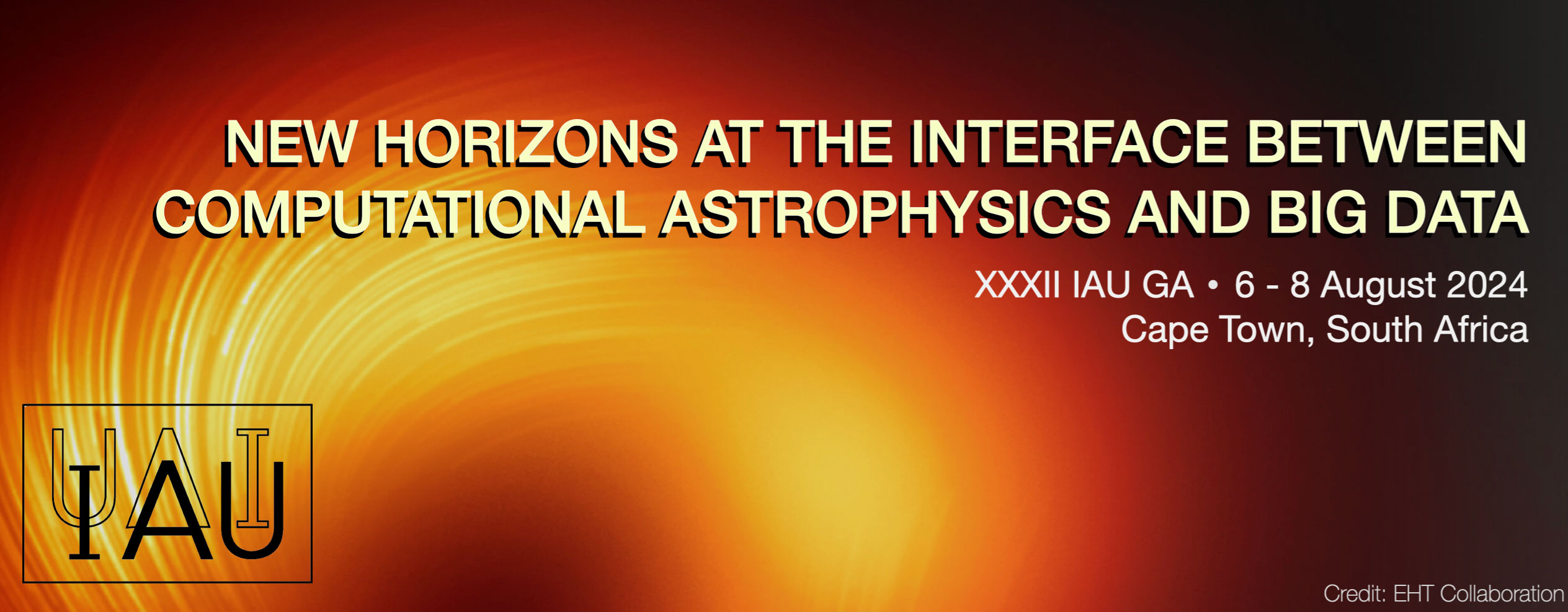
Hackathons
We are grateful to the Theoretical Astrophysics Program at the University of Arizona (TAP) for their generous sponsorship of the Hackathons!

See https://tap.arizona.edu/ for more details about their projects and initiatives.
The hackathons will take place at the CTICC on the 4th and 5th August. See draft programme for the hackathons below:
The hackathons are supported and sponsored by:
The workshops or ‘hacks’ will focus on training young researchers (PhD students and young postdocs) during sessions at the GA, and will cover state-of-the-art topics which are particularly ripe for growth – fields where there are already seeds and which would benefit from additional support and training. Computing resources will be provided by IDIA, e.g., cloud-based servers with the necessary software pre-installed. The main requirement is that participants must have some experience using Python and Jupyter Notebooks. Resources will be provided on this page well before the Focus Meeting to help participants prepare, e.g., links to MOOCs on introductory Python programming, JupyterHubs, etc.
Below we briefly describe the different hacks that will be available.
Hack: Magnetohydrodynamics with the PLUTO code – lead: Bhargav Vaidya
Participants will gain hands-on experience using the PLUTO code with end-to-end case studies right from defining the problem to visualization of output and physical interpretation. PLUTO is a freely-distributed software for the numerical solution of mixed hyperbolic/parabolic systems of partial differential equations (conservation laws) targeting high Mach number flows in astrophysical fluid dynamics. The focus for this hack will be Solar and Heliosphere Modelling (popularly known as space weather), a field that has experienced a deluge of data, e.g., with the advent of in-situ satellite data from the Parker Solar Probe and Solar Orbiter, and it is one of the areas where the critical 3D multi-scale MHD and plasma simulations are lagging. Furthermore, the topic is timely for the continent as countries are developing dedicated centres for Space Weather (e.g., SANSA). The techniques they will learn can be used to investigate topics ranging from planet formation to stellar and extragalactic jets, magnetospheric accretion and star-disk interaction, relativistic shock dynamics and fluid instabilities.
Hack: A first taste of MESA – an open source tool box for experiments in stellar astrophysics – lead: Lieke van Son
How do we know what we know about stars? How did we get to the insight that is now in textbooks? This workshop aims to give participants a first taste of MESA: one of the most widely used stellar evolutionary codes. MESA has many science applications, ranging from computations of binary systems, to planet structure, to nuclear burning in the accretion layers of neutron stars.
During the first part hands-on workshop, participants will learn how to adopt MESA for scientific problems and will be guided through some broadly applicable models like making a model of our Sun, and binary-star interactions. During the second part, we will trigger you to think not only about what the models tell us, but in particular investigate the reasons behind this. You will team up with your peers and apply such models to gravitational-wave progenitors, touching upon some unsolved questions.
Hack: Black hole modelling and imaging with EHT data – lead: Iniyan Natarajan
Participants will obtain hands-on experience using eht-imaging and Comrade, two of the many modelling and imaging tools used within the EHT collaboration. The eht-imaging library is a regularized maximum likelihood method for simulating, manipulating, and reconstructing images of the radio sky with very long baseline interferometry (VLBI) data, that was used to reconstruct images of the supermassive black holes at the centres of the galaxies M87 (M87*) and the Milky Way (Sgr A*). Comrade is a Bayesian modelling framework for VLBI data, which has been used to reconstruct images of Sgr A*. Both tools are more generally applicable to VLBI data and can be used to investigate the morphology and astrophysics of a variety of astronomical sources. Participants will learn how to model black holes and reconstruct images from VLBI data.
Hack: ALeRCE Community Broker for the Vera C. Rubin Observatory – lead: Francisco Forster
Participants will learn to access the Automatic Learning for the Rapid Classification of Events (ALeRCE) broker data. ALeRCE is an astronomical alert broker designed to provide a rapid and self-consistent classification of alerts coming from large etendue survey telescopes. It has been ingesting alerts from the Zwicky Transient Facility (ZTF) since 2019 and from the ATLAS telescope experimentally since 2022. It became one of the seven community brokers for the Vera C. Rubin Observatory in 2021. ALeRCE uses a pipeline which includes the real-time ingestion, aggregation, cross-matching, machine learning classification, and visualization of the ZTF alert stream. Use case Jupyter notebooks showing how to use the API or directly access the database will be focused around three different science cases: supernovae, variable stars and AGN science. Queries can be made for light curves, classification probabilities, or features associated with the different objects via simple commands in Python.


